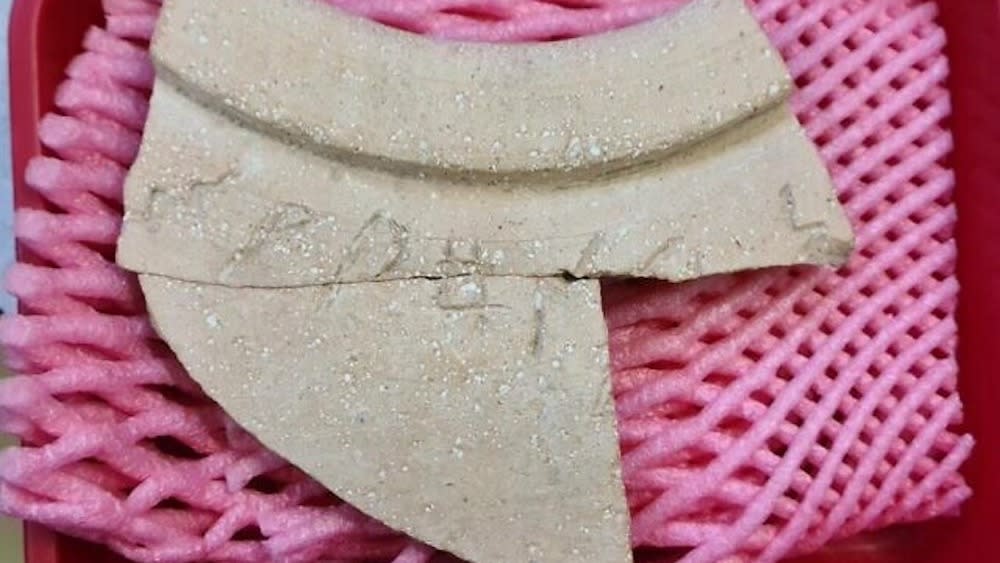Ancient inscription on jar found in Israel links kingdoms of Solomon and Sheba

- Oops!Something went wrong.Please try again later.
For more than a decade, archaeologists have struggled to decipher an inscription carved into the neck of a broken jar that dates back to King Solomon's reign in ancient Israel. Now, researchers have finally revealed the mysterious message's meaning.
Based on the new interpretation, published in January in the Jerusalem Journal of Archaeology, the inscription was engraved using Ancient South Arabian script in Sabaean, a common language that was spoken during biblical times on the Arabian Peninsula in the kingdom of Sheba, in what is today Yemen.
The text on the jar reads "ladanum 5," a reference to labdanum (Cistus ladanifer), an aromatic, plant-derived resin that was used to make incense, according to a Hebrew University of Jerusalem statement.
The inscription is thought to be the oldest known Ancient South Arabian script found in Israel, according to the study.
Related: King Solomon's mines were abandoned and became a desert wasteland. Here's why.
The shard of pottery — which archaeologists found buried alongside portions of six other large jars during a 2012 excavation in Ophel, a section of Jerusalem — dates to the 10th century B.C. Researchers consider it a "clear connection" to the biblical kingdom of Solomon and the nearby kingdom of Sheba, according to the statement.
"The vessel is locally made, and the inscription was engraved by a Sabaean speaker holding a position related to incense," study author Daniel Vainstub, an archaeologist at Ben-Gurion University of the Negev in Israel, told Live Science in an email. "That proves a strong relation between the two kingdoms."
Centuries ago, the kingdom of Sheba was instrumental in cultivating the plants needed to produce perfume and incense, while the kingdom of Solomon controlled the trade routes that crisscrossed the Negev desert and led to the Mediterranean ports where goods were then exported, according to the study.
RELATED STORIES
—King Solomon's mines in Spain? Not likely, experts say
—Ancient 'ritual bath' and elite villa unearthed by Jerusalem's Western Wall
—Ancient gold stash found in jug in Jerusalem
"Deciphering the inscription on this jar teaches us not only about the presence of a speaker of Sabaean in Israel during the time of King Solomon, but also about the geopolitical relations system in our region at that time — especially in light of the place where the jar was discovered, an area known for also being the administrative center during the days of King Solomon," Vainstub said in the statement.
"This is another testament to the extensive trade and cultural ties that existed between Israel under King Solomon and the Kingdom of Sheba," he said.

